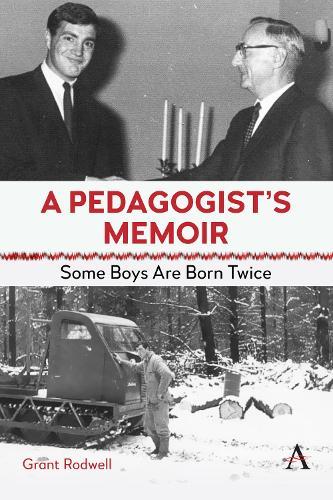Overview
Opportunities to write our memoirs are many and varied. To meet emerging demands, the memoir genre continually is evolving, and it is possible for the memoirist to shape the memoirs, with varying themes, time and settings, to be brought to bear on school education at a senior level and for a range of teacher-development programs. Thus, the developing importance of an accompanying exegesis. For better or for worse, childhoods shape adult relationships and attachment styles, profoundly shaping who we are as teachers, teaching styles and generally the things we consider important and not so important. The shape of our childhood and adolescence has a profound impact on how relationships are formed in adulthood. It can affect our ability to trust, be vulnerable and create productive bonds, both at school and college and professionally, and also our general levels of motivation. Through the aforementioned theme and subthemes, my memoirs here reveal how childhood struggle has shaped my approach to teaching and my academic career from an unskilled labourer from the country working class in the timber industry, deprived of a high school education and recruited into the workforce at 15 years of age, to a senior academic in one of Australia's G8 universities, holding five PhDs. With strong historical backgrounding, a special appeal of this book is its drive to place childhood and adolescent events contained in the memoirs in a wider historical context, looking to transnational movements such as discussions on anachronisms and eugenics. In so doing, the exegesis a fresh and exciting innovation is in harmony with the memoirs. The memoir is so refashioned as a pedagogical tool.
Full Product Details
Author: Grant Rodwell
Publisher: Anthem Press
Imprint: Anthem Press
Dimensions:
Width: 15.30cm
, Height: 2.00cm
, Length: 22.90cm
Weight: 0.536kg
ISBN: 9781839995644
ISBN 10: 1839995645
Pages: 272
Publication Date: 07 October 2025
Audience:
Professional and scholarly
,
Professional & Vocational
Format: Hardback
Publisher's Status: Active
Availability: Manufactured on demand

We will order this item for you from a manufactured on demand supplier.
Reviews
‘Rodwell says his life was “precariously positioned” – as a working-class, sexually abused, rural youth – and this well-written memoir tells his “born twice” journey and links to universal themes such as social class, educational opportunity and embedded community racism. The memoir shows how education positively changes lives. It is highly recommended for educators, and it also should be read by social workers, psychologists and healthcare professionals.’ —John Williamson, PhD, Professor Emeritus, University of Tasmania ‘Rodwell provides readers with a powerful and deeply insightful text through the juxtapositioning of identity formation, schooling and Australian values in the 1960s and ’70s as this nation evolved. He also educates us about the rich process of writing memoirs. The narratives are tragic, humorous and enlightening in a way that is instructive for students and teachers’ understanding of racism, discrimina-tion and lack of opportunity for many that still exists today: behaviours that remain covertly embedded in today’s educational practices in some communities, despite policy and rhetoric that advocate for inclusion and the valuing of diversity.’ — Emeritus Professor Tania Aspland, Vice President (Academ-ic), Kaplan Higher Education ANZ, Sydney, Australia ‘A most welcome aspect of this book is the focus, not only on formal education and schooling but also on the importance of informal education, outside the classroom, and the mutually enhancing interac-tion of diverse forms of educational experience. It is an excellent illustration of how education is the lived educational journey of the individual learner and their process of becoming.’ — Tom O’Donoghue, Professor Emeritus, The University of Western Australia
Author Information
Grant Rodwell is a retired school principal from Tasmania, Australia, and an academic from four Australian universities. He holds five PhDs.



